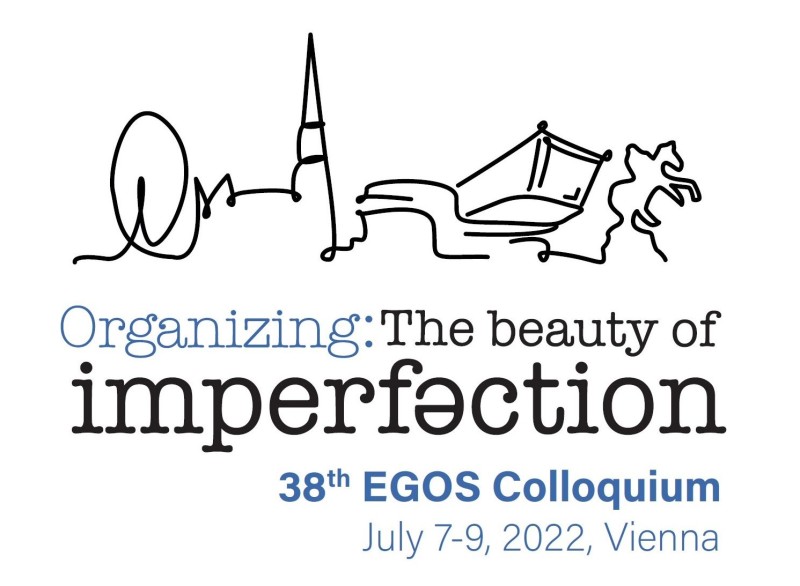Sub-theme 31: Imperfect Knowledge: Re-examining the Role of Experts and Expertise
Call for Papers
“What needs to be explained is not a one-sided ‘death of expertise’, ‘mistrust of experts’,
or ‘assault on science’,
but the two-headed pushmi-pullyu of unprecedented reliance on science and expertise
coupled with increased suspicion, skepticism, and dismissal of scientific findings,
expert opinion, or even of whole
branches of investigation.”
Eyal (2019, p. 2)
The role of experts and expertise has experienced renewed
significance in organization studies as a paradoxical juxtaposition has come to the fore. On the one hand, the notion of expert
has become broad and heterogenous in definition (Reed & Thomas, 2019; Wedel, 2011) with more and more adopting the moniker
(Fincham, 2012), and with it a renewed significance of its role in tackling global problems such as the COVID-19 pandemic
(Horton, 2020). On the other hand, there has been an increasing emphasis on the demise or crisis of expertise (Eyal, 2019)
suggesting the future role of experts is under question and even heading for irrelevance (Koppl, 2018; Nichols, 2017). Such
questioning of experts has been part of, for example, waves of anti-intellectualism and ‘post-truth’ associated with Brexit,
Trumpism and other populist phenomena recently on the rise in many parts of the world (Lopdrup-Hjorth & du Gay, 2020;
Robinson & Bristow, 2020). Consequently, this sub-theme seeks to problematise and critically assess the role of expertise,
considering if there is still a role for experts to play and if so, what that can constitute.
In keeping
with the broader theme of the EGOS Colloquium 2022, we seek to engage with imperfection critically examining concepts of expertise
as well as the various arguments that suggest at worst its demise (Nichols, 2017), or at best its adaptation (Collins &
Evans, 2007), in order to be reflexive about the ways we organize and how we engage with pressing societal and world-societal
issues. In doing so, we hope to spark new debates and discussions as to how some of the suggested trajectories of expertise
could be changed and thus how experts and expertise can continue to play a role in future significant global challenges. We
also encourage critical and creative engagement with the ways in which expertise is grounded in and perhaps even thrives through
imperfection. For example, papers might explore complexity and contradictions that characterise the work of experts, and the
paradoxical nature of the grand challenges that experts are expected to address. Papers might also consider ways in which
expertise can get imperfectly but surprisingly effectively entangled with its seeming opposites, such as when expertise-based
technocracy blends with populism to form techno-populist governance and organising (Bloom & Sancino, 2019).
The sub-theme welcomes papers that come from different theoretical traditions, analytical perspectives, methodological approaches,
and diverse contexts in order to appreciate such a fundamental societal issue as the role of expertise. Equally, whilst the
more recent events of the pandemic have brought the function of expertise into sharp focus, papers that recognise the ‘slow
burn’ of changes in expert labour and seek to consider it within a wider historical (and geographical) context are also encouraged.
Papers may address, but are not limited to, the following themes related to expertise:
What challenges and opportunities does the populist challenge pose for experts?
How have global crises such as COVID-19 (and others) impacted trust in experts and their knowledge?
How has the history of expert labour informed its current role and trajectory?
What role for technological rationalisation of expertise?
What are the contradictions and tensions inherent in a world where experts are proliferating but are less trusted than ever?
Is expertise really seeing a demise or is it merely being re-imagined? If so, how?
Can experts mount a convincing defence to the challengers of expertise and if so how? What are they doing to resist their potential demise?
Are variances between different forms of expertise a challenge or an opportunity for the continued relevance of expert labour?
What are the relationships between expertise and politics? Which historical changes have they undergone?
How are different geographies and cultural contexts engaging with experts and expertise? What do the similarities and contradictions between the approaches of different geographies tell us about the role of expertise?
References
Bloom, P., & Sancino, A. (2019): Disruptive Democracy: The Clash between Techno-Populism and Techno-Democracy. London: SAGE Publications.
- Collins, H., & Evans, R. (2007): Rethinking Expertise. Chicago: University of Chicago Press.
- Eyal, G. (2019): The Crisis of Expertise. Cambridge: Polity Press.
- Fincham, R. (2012): “Expert labour as a differentiated category: Power, knowledge and organisation.” New Technology, Work and Employment, 27 (3), 208–223.
- Horton, S. (2020): The COVID-19 Catastrophe. What's Gone Wrong and How To Stop It Happening Again. Cambridge: Polity Press.
- Koppl, R. (2018): Expert Failure. Cambridge: Cambridge University Press.
- Lopdrup-Hjorth, T., & du Gay, P. (2020): “Speaking truth to power? Anti-bureaucratic romanticism from critical organizational theorizing to the White House.” Organization, 27 (3), 441–453.
- Nichols, T. (2017): The Death of Expertise. Oxford: Oxford University Press.
- Reed, C., & Thomas, R. (2019): “Embracing Indeterminacy: On Being a Liminal Professional.” British Journal of Management, 32 (1), 219–234.
- Robinson, S., & Bristow, A. (2020): “Riding Populist Storms: Brexit, Trumpism and beyond. Special Paper Series Editorial.” Organization, 27 (3), 359–369.
- Wedel, J. (2011): Shadow Elite. New York: Basic Books.


